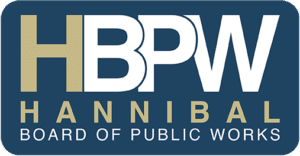On April 4, 2017, the citizens of Hannibal voted to remove the use of ammonia as part of the city’s disinfection system by a vote of 1,259 to 894. The proposition called for the Hannibal Code of Ordinances to be amended to include the ordinance prohibiting the use of ammonia in the public drinking water system within 90 days of approval by City Council.
The HBPW feels that it is important to keep it's customers as up-to-date as possible throughout the process of removing ammonia from the drinking water. As such, we have provided as much detail as possible concerning the legal actions the Hannibal Board of Public Works has taken since the proposition was certified as a City ordinance.
May 17, 2017
On May 17th the HBPW sent a letter to Mr. David Lamb, Missouri Department of Natural Resources Acting Director for the Water Protection Program, notifying them of the Proposition 1 referendum and requesting they approve the discontinuing use of ammonia in order to comply with the requirements of the ordinance.
May 30, 2017
On May 30th the HBPW received a response letter from Mr. David Lamb, MoDNR Water Protection Program Acting Director. The letter stated:
“HBPW has not submitted to the department a plan that evaluated any modification from the use of ammonia in its existing water treatment process. The department cannot approve a request to modify a treatment process until a water system submits a plan that proposes an alternative treatment process, along with the safeguards it will take to ensure the modification will not adversely affect water quality. As such, the department cannot approve HBPW’s request to cease the introduction of ammonia into its drinking water system, as currently proposed.”
Mr. Lamb continues on to state that in order to submit a plan that proposes an alternative treatment process, the HBPW will need to conduct pilot testing, and that the proposed testing parameters for the pilot testing should first be approved by the department prior to initiating the pilot study.
June 7, 2017
Bob Stevenson, General Manager for the HBPW, submitted a projects report to the Board.
July 18, 2017
Randy Park, HBPW President of the Board of Directors, announced that the Board has filed a lawsuit in Marion County Circuit Court seeking a temporary restraining order to enjoin enforcement of Hannibal Ordinance 4751 which has been proposed as Proposition 1 through the initiative process provided by the Hannibal City Charter.
The HBPW believes the Ordinance as it is written, forces the Board of Directors to violate either City or State drinking water regulations, and to comply with one would force the Board to directly violate the other.
To read the full press release, visit HBPW to Seek Temporary Restraining Order.
August 8, 2017
The City of Hannibal announced that it will not enforce the original ordinance and has prepared a replacement ordinance that will comply with state regulations.
August 14, 2017
Circuit Judge Rachel Bringer Shepherd notified the Hannibal Board of Public Works that the request for a temporary restraining order has been denied because "the controversy is not ripe for judicial intervention".
"At the August 8, 2017, proceedings, the attorney for Defendants stated on the record that Defendant LaGarce would not be seeking enforcement of Proposition 1 while proposing amendments to the Ordinance were pending before the City Council."
September 2017
City of Hannibal, Missouri Ordinance Number 4751 was repealed by City Council and substituting in its place an ordinance extending the deadline for the utility to remove ammonia from the treatment process. The new ordinance, the Hannibal Safe Drinking Water Chemical Use Reduction Act, calls for the removal of ammonia from the Public Drinking Water system no later than March 31, 2020. The ordinance also calls for the General Manager to provide written and oral reports to the City Council on a quarterly basis beginning September 2017.
The submittal of the final Chloramine Replacement Alternative Evaluation from Black & Veatch to the Missouri Department of Natural Resources on March 2, 2018 complied with the requirements within the revised ordinance.

